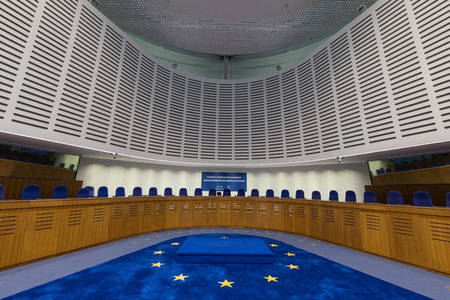European Court holding hearing on Russia-Georgia war case today

The Grand Chamber of the European Court of Human Rights (ECHR) final hearing in the case Georgia v. Russia concerning the armed conflict between Georgia and the Russia in August 2008 and its aftermath will be held today in Strasbourg.
This case raises issues under articles which concern the right to life, the prohibition of torture, inhumane and degrading treatment, the right to liberty and security, the right to respect for private and family life, the right to effective treatment.
Striking the town of Gori’s center by the Iskander – a mobile short-range ballistic missile system produced and deployed by the Russian Federation – is one of the central episodes that will be discussed by the court, Beka Dzamashvili, the Head of the Department of State Representation to International Courts at Ministry of Justice of Georgia said.
"This episode proves several important violations. First the ballistic missile was used against peaceful citizens – the city center empty of the armed forces was attacked by a very high precision missile and this happened when the Georgian side had unilaterally stopped combat actions. The evidence is quite clear, including the video material and reports by the experts,” Beka Dzamashvili said.
Other evidence include data collected by radar from August 8 to August 12 which shows that Russian air forces had a total control over Georgia’s sky, Deputy Minister of Justice Gocha Lortkipanidze said.
During the previous hearings the court has heard 33 witnesses in total: 16 summoned through the Georgian Government, 11 through the Government of Russia and six directly by the court.
As Georgia’s British lawyer in the case Ben Emmerson said yesterday, today’s hearing is a historic moment for Georgia, for Russia and the court itself, since this is the combination of ten years of litigation.
"This is an important day for the Georgian people, but it is also important for the European Court of Human Rights because this is the first time it has been called upon ever to adjudicate on mass violations on the scale of an instate application concerned within an armed conflict and it’s a big challenge for the court. I think all of us are much aware of the heavy responsibility that rests on our shoulders... We have been supported by a remarkable team of lawyers from the Georgian Ministry of Justice who works together with us to Maximilian the available evidence and materials to ensure that the court is fully equipped to reach a just result and that is very much what we are hoping to achieve at the hearing,” Emmerson told journalists yesterday.
After the hearing the Court will begin its deliberations, which will be held in private. Its ruling in the case will, however, be made at a later stage, reads the press release issued by the European Court of Human Rights on May 2.
 Tweet
Tweet  Share
Share